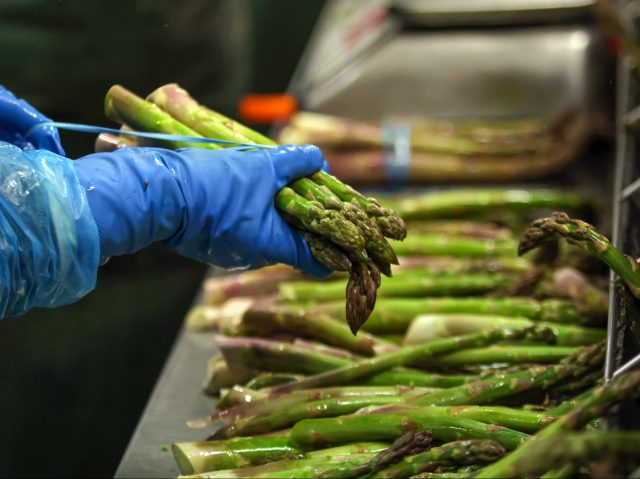The British government looks set to force the likes of state schools and hospitals to source up to half their food from their local area.
Britain’s public sector will soon be forced into buying locally grown produce, with the country’s environment tsar announcing plans which would see the likes of hospitals and schools required to source up to half of their food from their locality.
The scheme is reportedly an attempt to boost the country’s domestic food production, a topic of growing concern during the ongoing global food crisis sparked to a large degree by the war in Ukraine.
According to a report by The Telegraph, Environment Secretary George Eustice has announced the plan as part of the government’s efforts to support local suppliers in the United Kingdom, with the government aiming to see more fruit and vegetables grown in the country.
“The public sector must lead by example when it comes to supporting local suppliers and local economic growth,” the publication reports Eustice as saying.
“We are determined to support the sector to work with more small and local suppliers, and recognise those that are stepping up to the plate,” the Tory MP continued.
“We want public organisations to report on the food they buy, to further encourage the consumption of locally-sourced, high-quality food.”
The government plan also includes a push for the use of gene-edited crops in Britain, a controversial type of genetic modification aimed at manipulating plants to produce desired traits, which officials believe will also help boost national food self-sustainability.
Meanwhile, as Boris Johnson’s administration shifts its focus to stabilising food security in Britain, it appears to be abandoning some of its green agenda, including a previously announced rewilding project.
Aimed at returning agricultural land to nature, the plan to pay farmers to allow parts of their farmland to be turned into bogs, wetlands, and forests has now been scaled back seemingly in favour of boosting crop production.
As a result, The Times reports that the plan’s budget has been reduced to £50 million for three years of operation — next to nothing when compared to the minimum of £500 million each year that was originally expected to be earmarked for the project.
In this way, the U-turn in Westminster is in stark contrast with the continued obsession with green policy in Holyrood, with the Scottish government adamant that it will stick to its rewilding efforts, even under the threat of food shortages.
Even when pushed on the issue by local farming organisations, the country’s biodiversity tsar, Canadian-born minister Lorna Slater, rejected any notion of handing back land listed for rewilding to farmers in favour of her government’s climate agenda.
“We are still in a nature emergency that hasn’t gone away… so it’s a no,” the leftist minister previously said regarding the issue, despite warnings from the president of the National Union of Farmers Scotland, Martin Kennedy, that Scotland needs to focus on “what is really important… food and water”.

COMMENTS
Please let us know if you're having issues with commenting.